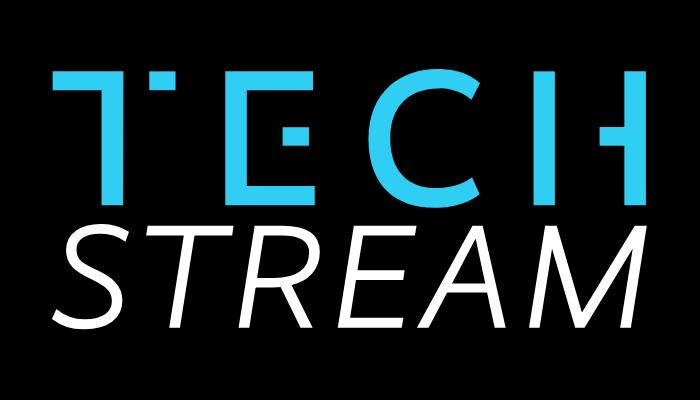Late last month, Steven Carrillo pulled up in an unmarked van outside a federal courthouse in Oakland as protests against police violence raged in the city and opened fire on two security officers posted outside, leaving one of the men dead, according to federal prosecutors. A week later, prosecutors allege, Carrillo ambushed police who came to search his home, killing one and critically wounding another.
Carrillo appears to have been part of the Boogaloo movement, an extremist, right-leaning and libertarian, anti-government militia with online roots that is increasingly organizing attacks in the real world. As he ran from police, Carrillo used his own blood to scrawl Boogaloo slogans on a car he had stolen—“I became unreasonable,” “Boog,” and “Stop the duopoly.” Carrillo was later found to be in possession of a Boogaloo patch circulated by one of the Boogaloo movement’s rapidly growing Facebook groups, the Thicc Boog Line, which was identified in a February Network Contagion Research Institute report.
The Boogaloo movement represents a new breed of self-organizing online militias that are using memes to incite violent insurrection and terror against the government and law enforcement. Their name is something of a joke: a reference to the 1984 movie Breakin’ 2: Electric Boogaloo. In internet culture, the word “boogaloo” has become a catch-all for bad sequels, and the Boogaloo movement has adopted it as their own in a reference to what they see as the coming sequel to the American Civil War. The meme is frequently used by a number of extremist libertarians, gun enthusiasts, anarchists, and white nationalists, and the movements adherents are now showing up at real-world protests carrying weapons and dressed in colorful Hawaiian shirts.
In their willingness to carry out attacks against law enforcement personnel to incite what they consider an imminent civil war, the Boogaloo movement poses a serious threat to police. The movement has its origins online, and its adherents have skillfully used memes to incite violent insurrection and terror against the government and law enforcement. Especially widespread on Facebook and Instagram, Boogaloo enthusiasts share instructions for explosives and 3-D printed firearms, distribute illegal firearms modifications, lead users into encrypted messaging systems, distribute violent propaganda, and target their recruitment efforts towards active and former military personnel. The movement is a case study in how we still do not entirely understand how radicalization occurs in the digital domain.
Using a combination of quantitative and qualitative approaches on hundreds of millions of comments across multiple web communities, a recent NCRI report analyzes the “boogaloo” meme, to chart how it has metastasized across both mainstream and subcultural online platforms. While the boogaloo initially emerged in response to concerns around the second amendment, NCRI’s most recent report shows how the militia rapidly shifted its focus to state and federal restrictions imposed in response to the COVID-19 pandemic. As a captive, stuck-at-home audience grew increasingly isolated and unemployed during this period, the Boogaloo movement’s popularity sharply grew across both fringe web communities, such as 4chan, and more mainstream ones. Increasingly, Boogaloo enthusiasts began appearing at real-world anti-lockdown protests carrying guns.
The Boogaloo movement has evolved an increasingly coherent shared narrative, complete with martyr mythology and a growing underlying network sharing violent memes and inside jokes that respond to real-world events, such as violent attacks against the police or armed rallies. Like an American version of the Islamic State, their mythology attempts to recapture a glorious revolutionary American past in a mythological confrontation. Its adherents have been accused of using IED and pipe bombs to target police, plotting bombings to spark an anti-government uprising in Las Vegas, live-streaming an attempt to “ambush and execute” a police officer, most recently, the attacks against law enforcement in Oakland and Santa Cruz. The Boogaloo movement seeks to co-opt grievances across the political and racial spectrum and funnel them into an anti-government mob with tactical and technological capacities that look a lot like an American version of the Islamic State or al Qaeda.
This last point especially bears careful consideration: The hope of these militants is to incite violence sufficient for society to betray the American civic tradition by forcing immense violence to protect it.
The Boogaloo movement has important lessons for U.S. authorities. Law enforcement and policymakers should consider that terrorism inspired by social media has evolved from lone-wolf threat actors to a meme-based insurgency that can coalesce in a short time period. Efforts to combat movements such as the Boogaloo should include projects to develop the capacity to share information centrally and the resources to develop real-time analytic tools to provide a window into threat actors in the cyber domain.
Additionally, by understanding the way the Boogaloo movement operates online, through memes and in-jokes, a strategy to counter their messaging online might be conceived. Use of Boogaloo memes is a possible indicator of radicalization, and it is the individuals who post them who need to be convinced that they have something to gain by participating in civil society instead of destroying it.
Alex Goldenberg is the lead intelligence analyst at the Network Contagion Research Institute.
Joel Finkelstein is a visiting scholar at the James Madison Program at Princeton University.
John Farmer Jr. is director of the Eagleton Institute of Politics at Rutgers University. He is a former assistant U.S. attorney, counsel to the governor of New Jersey, New Jersey attorney general, senior counsel to the 9/11 Commission, dean of Rutgers Law School, and executive vice president and general counsel of Rutgers University.
Facebook provides financial support to the Brookings Institution, a nonprofit organization devoted to rigorous, independent, in-depth public policy research.
The Brookings Institution is committed to quality, independence, and impact.
We are supported by a diverse array of funders. In line with our values and policies, each Brookings publication represents the sole views of its author(s).




Commentary
How the Boogaloo movement is turning memes into violent action
June 29, 2020